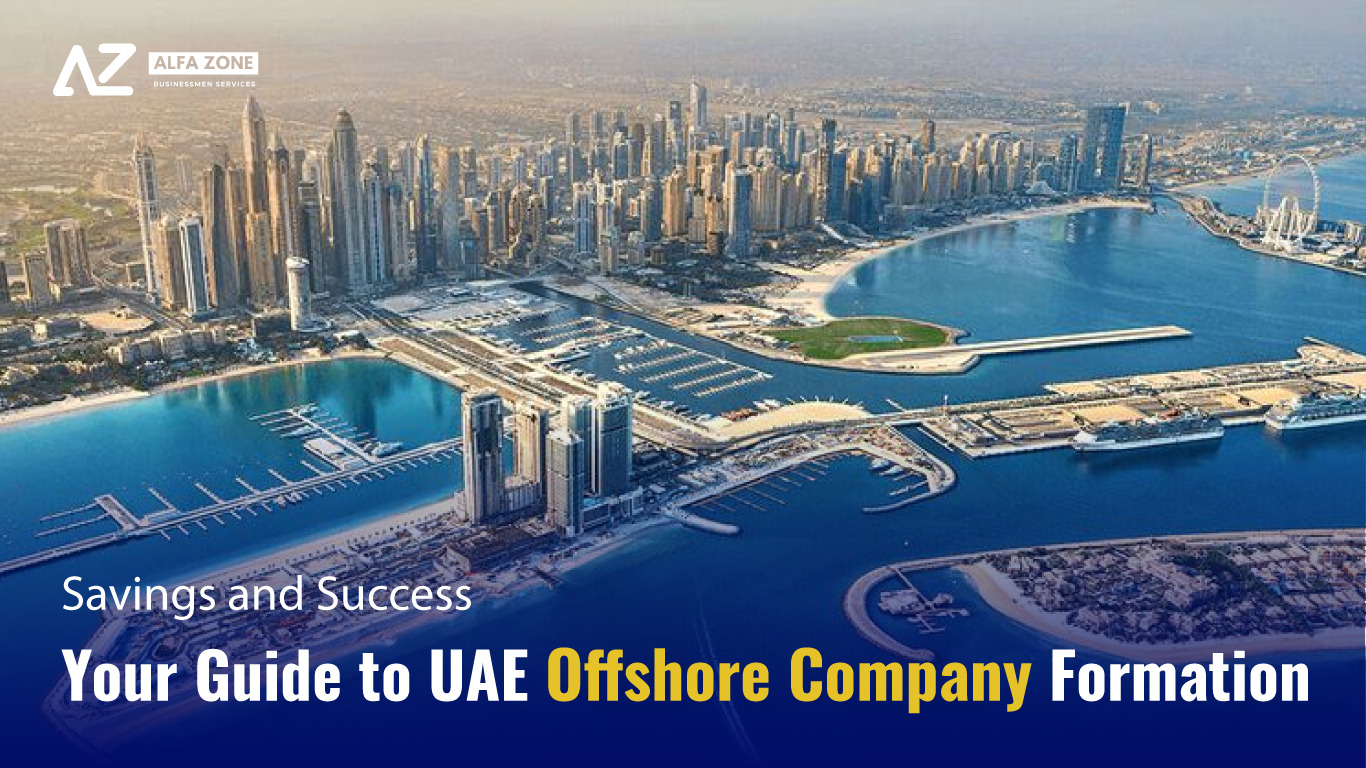Discover the Relevance of Offshore Business Formations for Global Service Growth
Offshore company formations have become a necessary approach for businesses aiming for global expansion. These entities offer significant benefits, consisting of tax obligation optimization and boosted personal privacy. The intricacies surrounding regulatory and lawful frameworks can be challenging. Companies have to browse these ins and outs to optimize their potential. Understanding the core elements of offshore operations is essential for those looking to enhance their international presence and safeguard their assets. What certain benefits can business acquire from this method?

Comprehending Offshore Business Formations
Although lots of business owners seek opportunities for worldwide organization growth, comprehending offshore company developments is vital for traversing this complex landscape. Offshore business formation refers to the procedure of registering a service in a foreign jurisdiction, commonly for factors such as tax obligation effectiveness, regulative advantages, and property defense. Business owners should think about different aspects, consisting of the legal requirements of the chosen jurisdiction, the effects of local legislations, and the benefits of different business structures. In addition, expertise of worldwide treaties and compliance with international financial policies are considerable. Steering this surface requires mindful preparation and strategic understandings, as the incorrect decisions can result in financial mistakes or legal complications. By grasping the subtleties of offshore company formations, entrepreneurs can position their companies properly for worldwide procedures, ensuring they are well-prepared to take advantage of the chances presented by a global market.
Key Benefits of Establishing an Offshore Entity
Developing an overseas entity supplies various benefits that can greatly improve a service's functional effectiveness and economic performance. One substantial advantage is increased flexibility in handling worldwide procedures. Offshore entities typically enable structured treatments that assist in quicker decision-making and responsiveness to market changes (offshore company formations).Additionally, organizations can access to worldwide markets a lot more quickly, leveraging regional knowledge and resources that may not be available in their home country. This can result in enhanced competition and innovation.Furthermore, establishing an offshore company can offer improved privacy and confidentiality for owners and stakeholders. This protection can assist safeguard sensitive details from potential competitors.Lastly, companies might experience reduced regulative problems and compliance costs, permitting them to assign sources much more successfully. Generally, these essential benefits make offshore entities a tactical choice for businesses going for global development and improved functional effectiveness

Tax Obligation Optimization Approaches Via Offshore Frameworks
Offshore structures not only enhance functional adaptability and accessibility to worldwide markets yet also present significant chances for tax obligation optimization. Organizations can take advantage of positive tax territories to lower their overall tax concern, enabling for reinvestment and growth. By establishing an offshore company in a tax-efficient region, organizations can take advantage of reduced corporate tax obligation prices, tax exceptions on specific kinds of income, and enhanced property protection.These structures can assist in tax obligation planning methods such as profit moving, where earnings are assigned to low-tax territories, and making use of holding business to take care of dividends and royalties properly. Furthermore, using offshore accounts can improve cross-border transactions, reducing withholding tax obligations and boosting money circulation.
Enhancing Privacy and Privacy in Organization Operations
Exactly how can organizations effectively secure their delicate details while steering with the complexities of international operations? Offshore company developments supply a calculated opportunity for enhancing personal privacy and privacy in business tasks. By developing entities in jurisdictions with strong personal privacy legislations, firms can restrict the direct exposure of their functional and financial details. This not just protects proprietary information but also minimizes risks connected with data violations and unauthorized disclosures.Utilizing overseas structures permits services to preserve privacy in ownership and deals, which is important in competitive markets. Furthermore, these developments typically give advanced information defense regulations, making sure that sensitive information is shielded from spying eyes.Employing durable safety steps, such as security and safe communication networks, better boosts the privacy of organization procedures. By integrating these methods, business can with confidence browse the worldwide landscape while protecting their critical details and maintaining an one-upmanship.
Navigating Legal and Regulative Factors to consider for Offshore Firms
Maneuvering the complexities of international service requires an eager understanding of the lawful and regulatory structures that govern offshore business. These frameworks vary greatly throughout territories, necessitating cautious analysis to assure compliance. Local business owner need to understand local legislations regarding tax, reporting obligations, and business governance to prevent legal pitfalls.Additionally, regulations surrounding anti-money laundering (AML) and know-your-customer (KYC) techniques play an essential role in keeping the authenticity of overseas entities. Failing to follow these laws can lead to severe fines, including criminal charges.Engaging with lawful experts who focus on overseas company formation is commonly advisable, as they can browse the complex landscape of global legislation. By continuing to be educated about the evolving governing environment, businesses can purposefully leverage offshore structures to enhance procedures while lessening risks. Inevitably, a comprehensive understanding of lawful considerations is crucial for effective global growth.
Regularly Asked Questions
Exactly how Long Does It Take to Set up an Offshore Company?
The period to develop an offshore business varies by jurisdiction, normally varying from a few days to a number of weeks. Aspects affecting this timeframe include particular regulatory requirements, documents preparation, see this here and the effectiveness of neighborhood authorities.
What Are the Costs Related To Offshore Firm Development?


Can People From Any Country Form an Offshore Business?
Individuals from numerous nations can without a doubt form offshore companies. Nevertheless, certain laws, requirements, and restrictions may vary by territory, demanding thorough research to ensure compliance with local legislations and international criteria before proceeding.
Are There Any Type Of Continuous Conformity Needs for Offshore Firms?
Continuous conformity requirements for offshore business differ by jurisdiction. Normally, these consist of yearly filings, tax declarations, and maintaining exact records. Failure to abide can cause penalties, making adherence important for company sustainability and lawful standing.
Just How Can I Locate a Credible Offshore Provider?
To discover a trustworthy overseas company, one have a peek at this site need to look into on-line testimonials, validate qualifications, and look for referrals from relied on organization affiliates. Furthermore, comparing solutions and prices can help assure a dependable choice for overseas business development. Offshore company formations have come to be a vital strategy for services intending for worldwide expansion. Lots of business owners look for possibilities for international service development, comprehending overseas business formations is essential for traversing this complicated landscape. Offshore company development refers to the process of registering a business in an international jurisdiction, usually for reasons such as tax obligation effectiveness, regulative advantages, and asset defense. By developing an offshore firm in a tax-efficient region, companies can profit from minimized business tax obligation prices, tax exemptions on specific kinds of revenue, and enhanced asset our website protection.These structures can assist in tax obligation preparation strategies such as profit moving, where revenues are designated to low-tax territories, and the usage of holding companies to manage dividends and nobilities efficiently. Steering the complexities of global service needs a keen understanding of the legal and governing structures that control offshore companies.